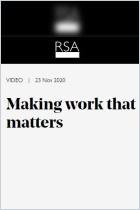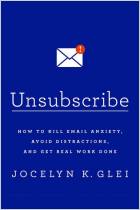Melden Sie sich bei getAbstract an, um die Zusammenfassung zu erhalten.

Melden Sie sich bei getAbstract an, um die Zusammenfassung zu erhalten.
Adam Grant
Your Email Does Not Constitute My Emergency
The New York Times, 2023
Was ist drin?
It’s time to stop feeling guilty about less-than-speedy email replies.
Recommendation
“Sorry for the delay…” has become a standard email opener in business culture. But are these apologies justified? In this eloquent op-ed, organizational psychologist Adam Grant explores the value of setting boundaries regarding your relationship with your inbox. After all, Grant notes, most emails aren’t genuinely urgent, and even if they were, he argues, a less-than-speedy reply should not automatically spark feelings of guilt. To avoid the burnout endemic in today’s “always on” work culture, people need to start valuing the quality of a reply more than its speed.
Summary
About the Author
Adam Grant is a contributing Opinion writer for The New York Times. He is an organizational psychologist at Wharton, the author of the book Think Again and the host of the TED podcast Re:Thinking.





























Comment on this summary